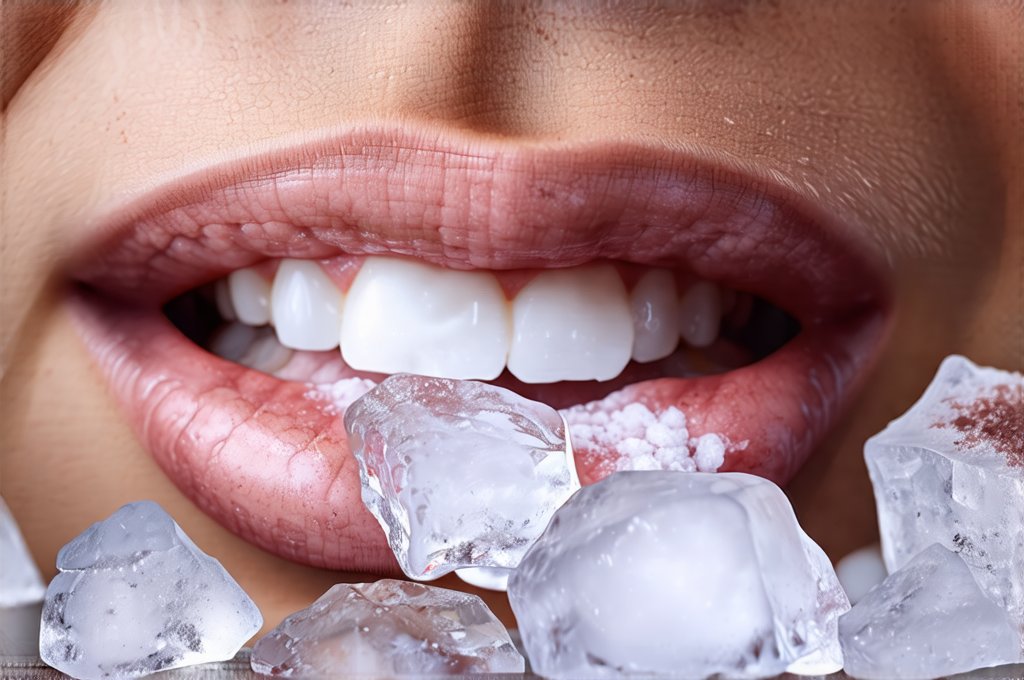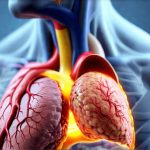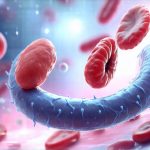The seemingly innocuous habit of chewing ice – pagophagia – is surprisingly common, yet often dismissed as merely a quirky preference. Many people enjoy the crisp, cool sensation, especially on hot days or during pregnancy. However, beneath this simple act lies a complex interplay between physiological needs and potential underlying health concerns. Regularly craving and consuming ice isn’t always about refreshment; it can be a significant indicator of nutritional deficiencies, particularly iron deficiency anemia, and can exert considerable stress on the gastrointestinal system. Understanding why this happens is crucial for addressing the root cause rather than simply managing the symptom.
This persistent urge to chew ice often goes unnoticed as a potential health signal because it’s frequently rationalized away – a thirst quencher, a stress reliever, or just something enjoyable. The problem arises when it becomes compulsive and consistent, escalating from an occasional habit into a daily routine. This isn’t merely a matter of dental concern (though chipped teeth are a very real risk); it’s about listening to what the body is trying to communicate through this unusual craving. Ignoring pagophagia may mask more serious health issues that require attention, ultimately impacting overall well-being and potentially delaying appropriate medical intervention. Understanding how gut health influences how you react to social situations and stress can also help address some of the underlying causes that contribute to these behaviors.
The Iron Deficiency Connection
The most frequently cited link between ice chewing and underlying health problems centers around iron deficiency anemia. While the exact mechanism isn’t fully understood, a compelling theory proposes that ice chewing provides a temporary sensation of alertness and cognitive improvement for individuals experiencing low iron levels. Iron is vital for carrying oxygen throughout the body, and when deficient, it can lead to fatigue, weakness, and impaired brain function. The act of chewing ice appears to stimulate blood flow to the brain, creating a fleeting sense of increased energy and focus – essentially offering temporary relief from the symptoms of anemia.
This isn’t to say that everyone who chews ice is iron-deficient; however, the strong correlation warrants investigation if the habit becomes persistent and compulsive. Studies have shown significant improvements in pagophagia symptoms after iron supplementation in individuals diagnosed with iron deficiency anemia. It’s important to note that other types of anemia can also contribute to fatigue and cognitive impairment, but iron deficiency remains the most strongly linked to ice craving. The body’s desperate attempt to compensate for a lack of oxygen delivery may manifest as this unusual behavior, highlighting the importance of recognizing it as a potential red flag. Why cravings may signal underlying digestive stress can also play a role in these kinds of behaviors.
Furthermore, the association isn’t always straightforward. Some individuals with low iron levels don’t crave ice, while others without documented anemia do. This suggests that individual physiological responses and other contributing factors play a role in determining whether pagophagia will develop. However, given the prevalence of iron deficiency, particularly among women of childbearing age and individuals with dietary restrictions, it remains a primary concern when evaluating this habit.
Gut Stress & Digestive Implications
Beyond nutritional deficiencies, chronic ice chewing can significantly impact gastrointestinal health. The extreme coldness of ice can cause vasoconstriction – narrowing of blood vessels – in the digestive tract, potentially leading to inflammation and discomfort. Repeated exposure to such temperature fluctuations can disrupt normal digestive processes and compromise the delicate balance of the gut microbiome. This disruption can manifest as bloating, abdominal pain, diarrhea, or even more serious conditions like gastritis. Can gut parasites cause nutrient deficiencies and bloating? is also an important question to ask when considering the source of these issues.
Moreover, consistently chewing ice puts a substantial strain on the teeth and jaw, which impacts digestion indirectly. Temporomandibular joint (TMJ) disorders, caused by excessive stress on the jaw muscles, can lead to chronic facial pain, headaches, and difficulty eating – all of which contribute to digestive issues. The resulting discomfort may discourage individuals from consuming nutrient-rich foods, further exacerbating any underlying nutritional deficiencies.
The body’s ability to properly absorb nutrients is also affected by a stressed digestive system. Inflammation in the gut lining reduces its capacity to effectively process food, leading to malabsorption and potentially worsening existing deficiencies. This creates a vicious cycle where ice chewing contributes to digestive problems that then exacerbate the very conditions (like iron deficiency) that may be driving the craving for ice in the first place. How the gut communicates with the brain during stress and burnout can help explain how these issues are interconnected.
Identifying & Addressing Underlying Deficiencies
The first step in addressing persistent ice chewing is accurate diagnosis. A simple blood test can determine if iron levels are low and whether anemia is present. However, it’s crucial to go beyond just checking iron; a comprehensive nutritional panel should be considered to identify any other potential deficiencies contributing to the craving. This might include assessing vitamin D, zinc, and B vitamins, as these nutrients also play essential roles in energy production and cognitive function.
- Consult with a healthcare professional: Don’t self-diagnose or attempt to treat deficiencies without medical guidance.
- Iron-rich diet: Incorporate foods rich in iron into your daily meals, such as lean meats, poultry, fish, beans, lentils, spinach, and fortified cereals.
- Supplementation (if necessary): If blood tests confirm an iron deficiency, a healthcare provider may recommend iron supplements to restore healthy levels.
The Role of Hydration & Electrolytes
Sometimes, ice chewing isn’t about deficiencies; it’s simply about hydration and electrolyte balance. Dehydration can trigger cravings for something cold and refreshing, and ice provides a temporary sense of relief. However, relying on ice as a primary source of hydration is counterproductive, as the body expends energy warming the ice to internal temperature, potentially leading to further dehydration.
Maintaining adequate hydration throughout the day with water and electrolyte-rich beverages is crucial. Electrolytes – sodium, potassium, magnesium, and calcium – are lost through sweat and essential for proper bodily functions. Replenishing these electrolytes can reduce cravings for ice and improve overall health. Understanding GERD and muscle tension: why it may not be just stress is also important to consider when addressing digestive issues.
Behavioral Strategies & Alternative Habits
Breaking the habit of compulsive ice chewing often requires a combination of addressing underlying deficiencies and implementing behavioral strategies. Recognizing the triggers that lead to ice craving is the first step. Is it stress, boredom, or fatigue? Identifying these patterns allows for proactive interventions. How gut health can be a root cause of hormonal acne and oily skin demonstrates the broad impact that gut health has on overall wellbeing.
- Mindful awareness: Pay attention to when and why you crave ice.
- Alternative coping mechanisms: Replace ice chewing with healthier habits like drinking water, chewing sugar-free gum, or engaging in relaxing activities such as deep breathing exercises or meditation.
- Dental protection: If stopping the habit immediately is challenging, consider using a mouthguard to protect your teeth from damage while you work on addressing the underlying cause.


















